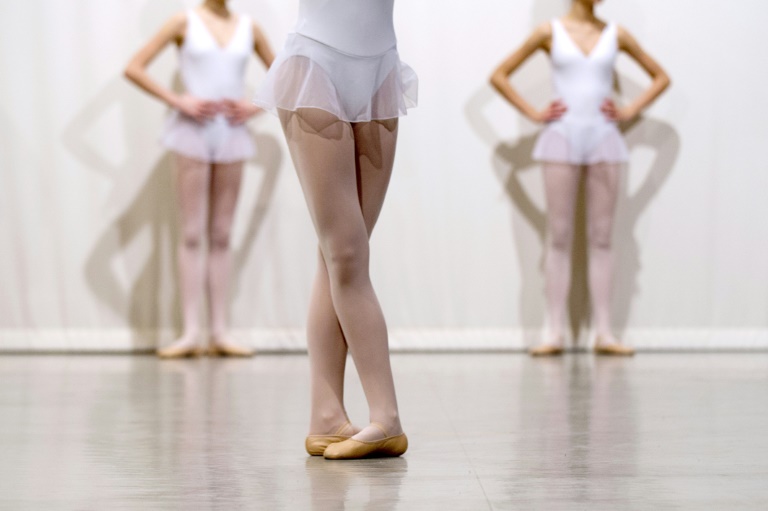
PARIS - The world might feel like it is falling apart but that is no excuse for slacking at the Paris Opera Ballet School.
Teacher Wilfried Romoli barks out orders to his final year boys at what is arguably the world's best ballet school, and certainly its oldest having been founded by the "Sun King" Louis XIV -- no mean dancer himself.
They are about to face fantastically tough tests that might determine the rest of their careers. The stakes could not be higher.
The annual competitive examination is the holy grail for final-year boarders at the school in Nanterre, just west of the French capital.
For the very best, there is the possibility of a place in the Paris Opera's corps de ballet.
But even for the creme de la creme, there can be disappointment. Some years none are taken on, depending on the ballet's needs.
With the coronavirus pandemic following a marathon strike at the Paris Opera, it has been a tough year for the "little rats", as the students are affectionately known.
Exams were postponed and pupils forced to train and rehearse at home, which can be potentially disastrous for such elite athletes and performers.
- 'Little rats' to big stars -
"I quickly realised that we were at risk of sacrificing a generation," said the school's director Elisabeth Platel, guardian of the French style of classical dance.
"So I decided to give all the students who were not taken on by the company an extra year" to prove themselves, the former legendary prima ballerina told AFP.
Even the lucky few selected for the ballet will not be able to take their traditional first bow at the iconic Opera Garnier until December.
For a whole year, "the entire school has not had to face the public, nor stage fright," Platel noted.
The "little rats" were able to restart classes in June after France's two-month lockdown, but 20 of the multinational group were unable to return -- blocked in homes from Canada to Australia by travel bans or quarantines.
The school's dormitories have also reopened, with just one student per room rather than the usual three.
Dance studios are regularly aired out, barres are disinfected and everyone must wear a mask as they move between classes.
Folk dance, mime and pas de deux courses have been suspended to minimise physical contact.
- Leaping gazelles -
Final year student Rubens, 18, did a series of grand jetes, leaping like a gazelle across the room. He injured his ankle before the lockdown and had to start practising again practically "from zero" at home, he said.
"It was a little bit like being in prison but it allowed me to be really concentrated so that I could improve the quality of my work," Rubens added.
Another dancer, Margaux, had fears of "falling behind" during the lockdown.
Ballet dancers grow up with warnings to stay in peak condition drilled into them.
One maxim goes: "When you miss a class for a day, you notice it. The second day the teacher notices it. And the third, the public sees it."
"It was hard," Margaux said, "but we have learned to work on our own."
The school organised Zoom courses as soon as France locked down, with students getting individual follow-up.
But for many, practising at home was rather rudimentary, with a window sill or a chair serving as a barre.
"We had to motivate them" at first, Romoli recalled, though many have returned to the school eager to make up for what they missed, "catching on three times quicker" than usual, he added.
- Fears for the profession -
While there was some leeway during lockdown, rigour returned as soon as they stepped back into the studio. "They have to understand the hill they have to climb -- it's their future," said Romoli.
The separation that teachers and students endured actually brought them closer, said Geraldine Wiart, in charge of younger dancers admitted from the age of eight.
"We have a very particular kind of contact" via video and text messages, she said.
But some things have not changed. The pressure and exacting standards endure, and every student must pass muster in front of a panel of judges to determine if they move up a year or not.
"Spirits have been kept high -- these are children who really want to dance," school director Platel said.
But with theatres and opera houses around the world facing uncertain fates after the pandemic, "I am worried for the future of our profession.
"Could this be a turning point," she wondered.
It's another lesson the former star wants to teach the next generation: the little rats are learning "just how fragile our profession is", she said.